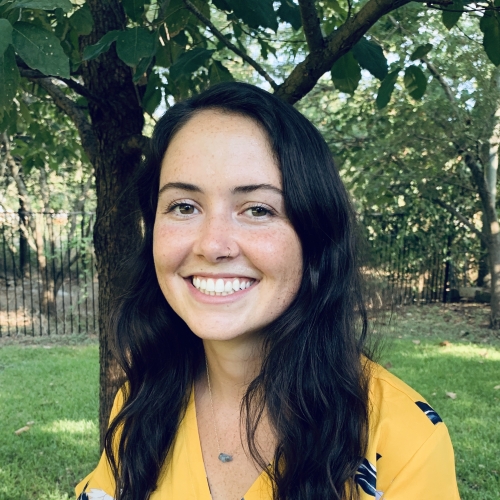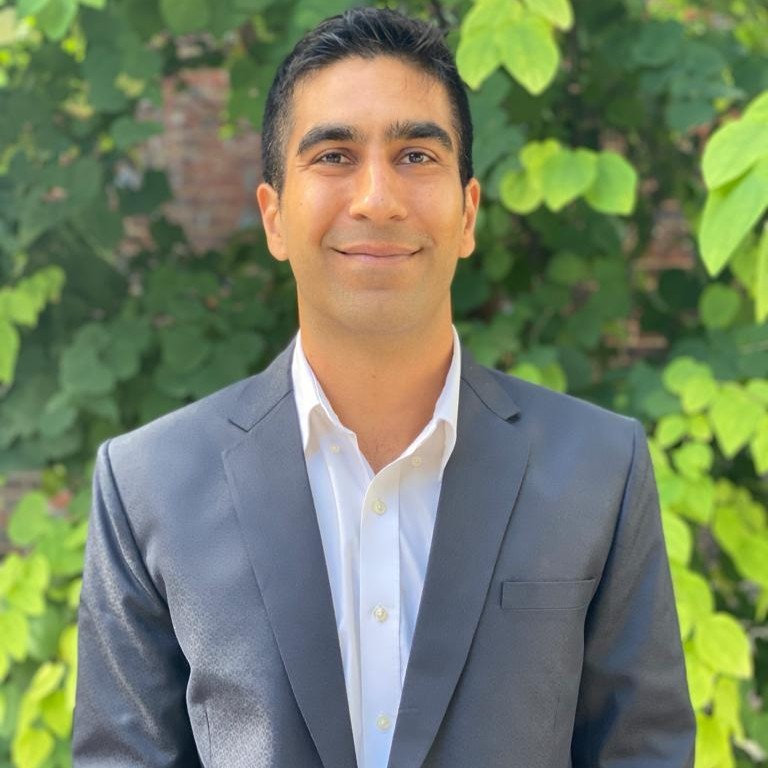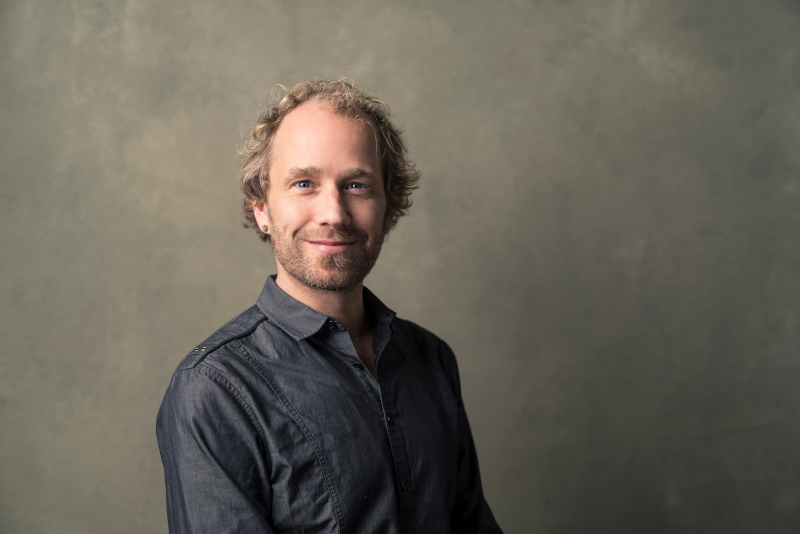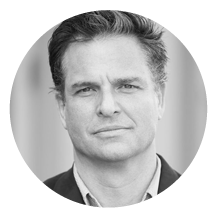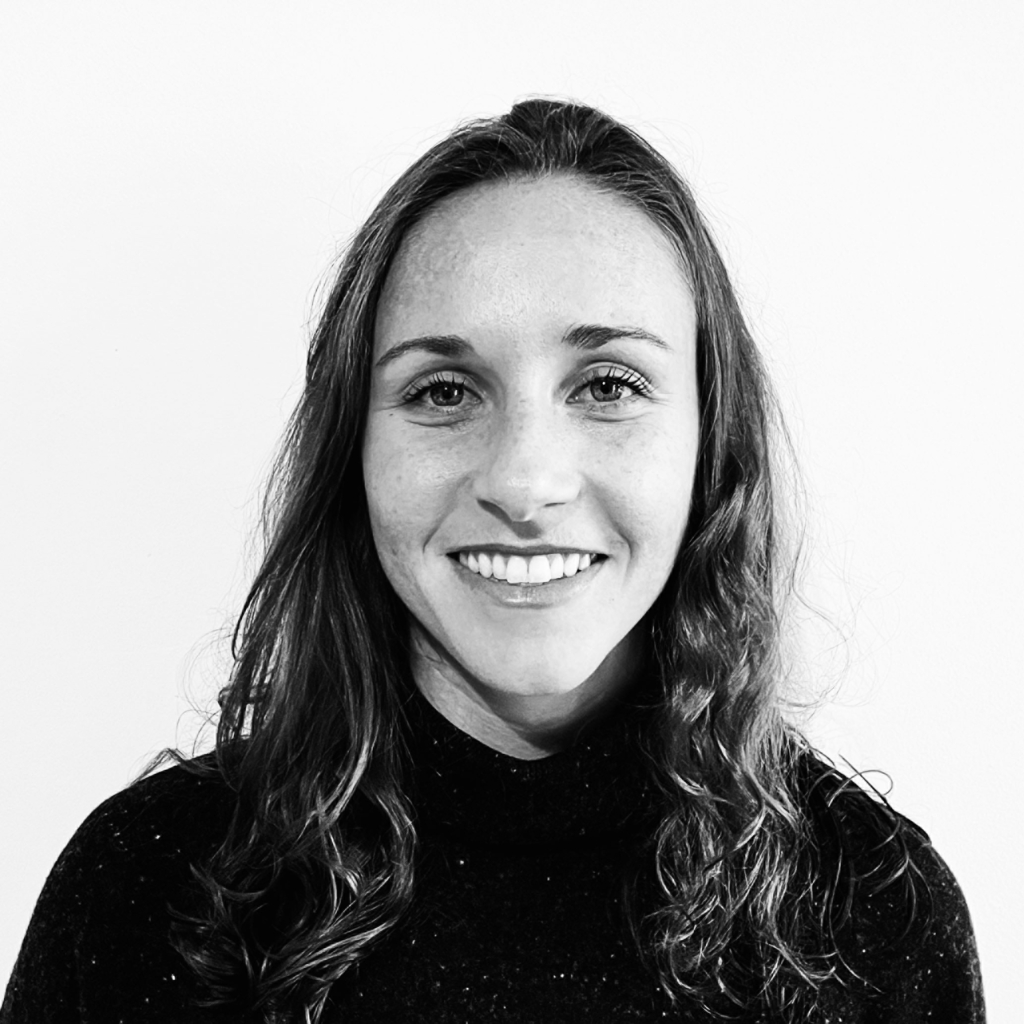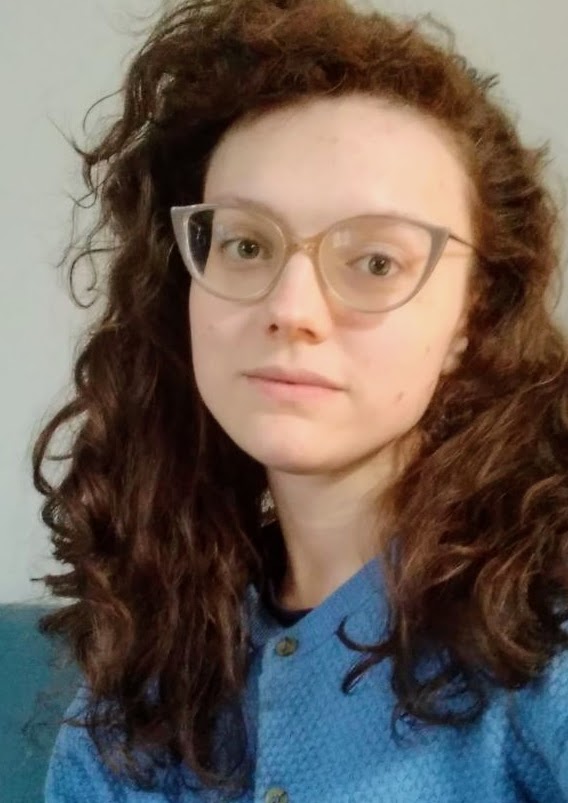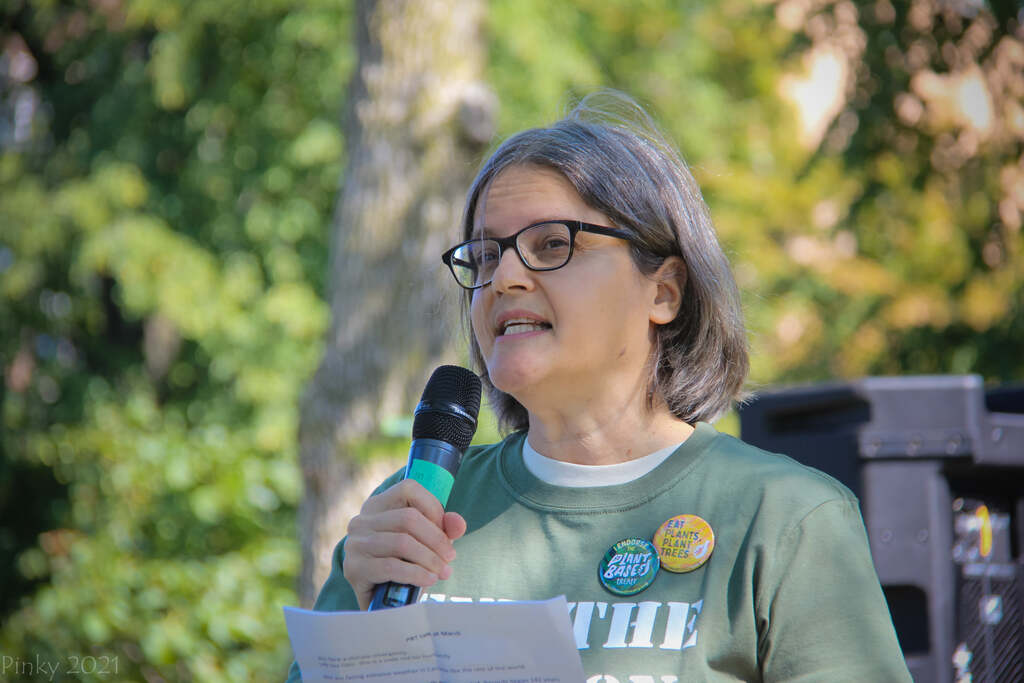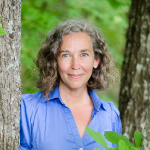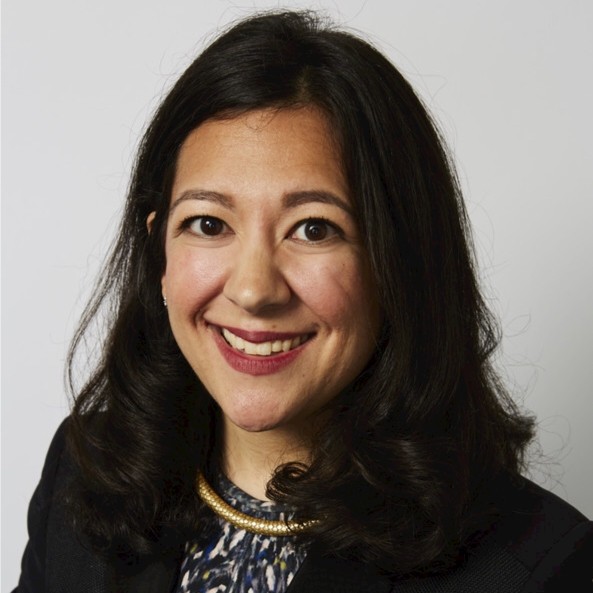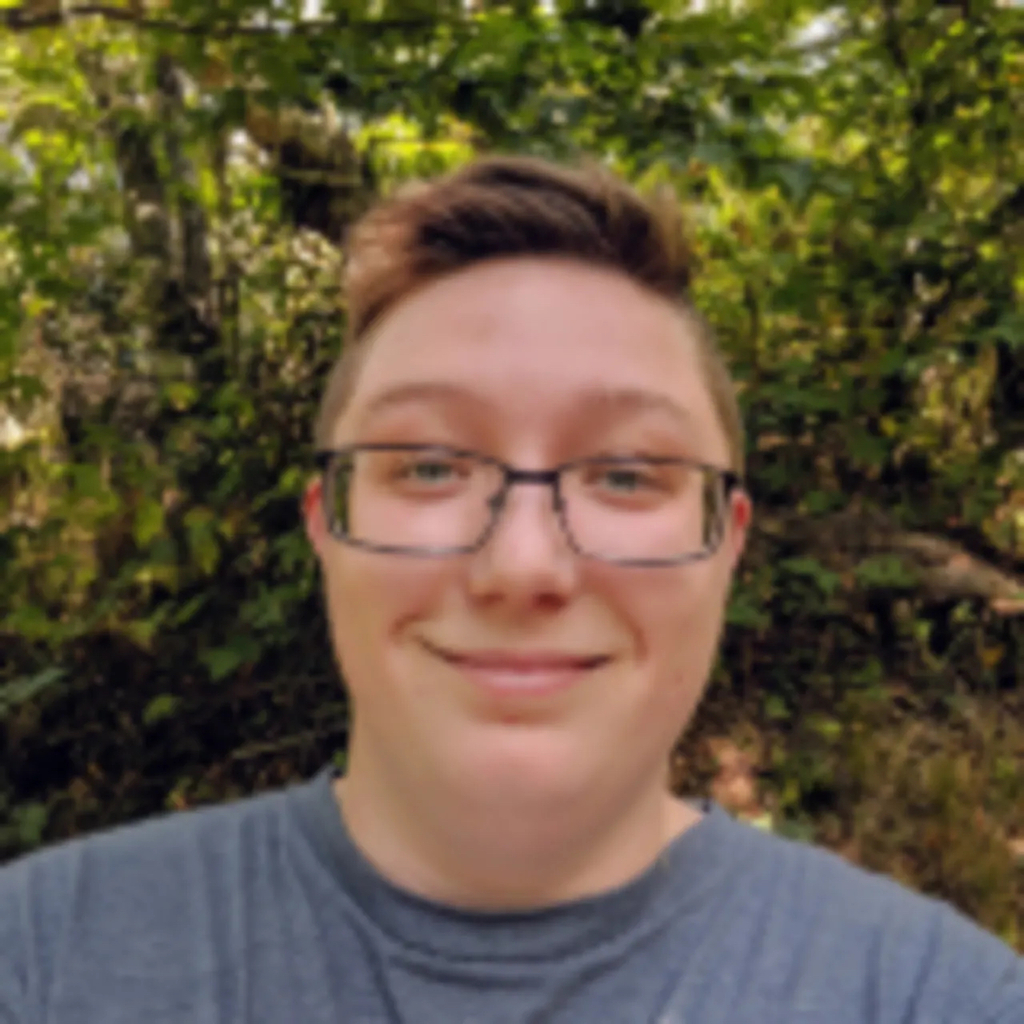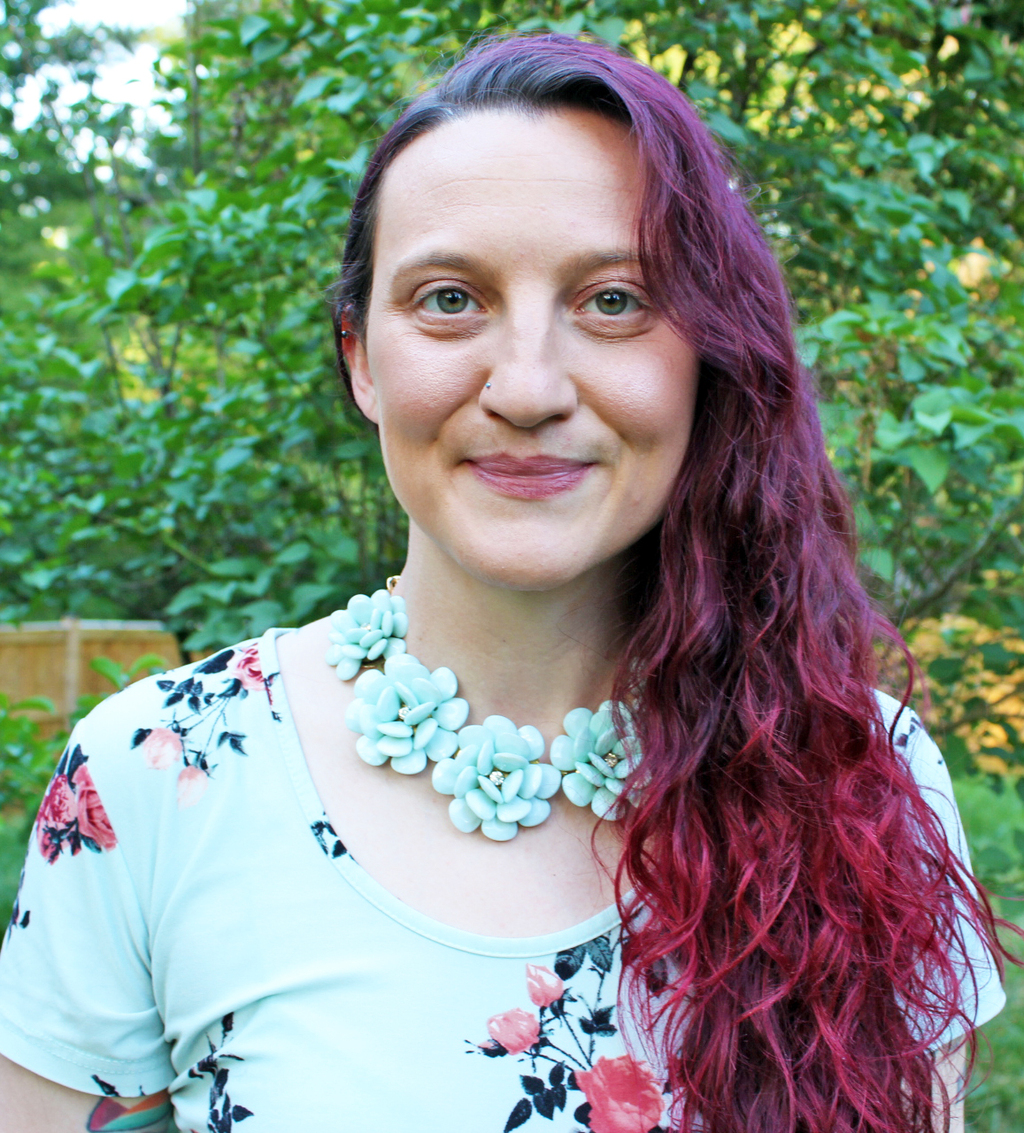Earth • Food • Life
From Observatory
(Redirected from Earth • Food • Life)
Jump to:navigation, search
whitelistUser:WikiVisor
Earth • Food • Life
Environmental journalism that integrates the path for sustainable lifestyles and an ethical diet.
Latest from this source
We must find a better way to prevent land use from changing.
Fossil fuel stakeholders have been seeking new revenue in the petrochemical industry in general, and plastics in particular.
Regulatory loopholes allow more than 30 million pounds of a cancer-causing pesticide to be sprayed on U.S. crops.
A product of entrenched, historic racism, “sacrifice zones”—designed to site pollution hot spots within communities of color—are a frontline in a largely silent, often deadly, and steadily growing health crisis across the United States.
Animal whisperer Sy Montgomery argues that we share greater similarities than differences with our fellow animals, and that fact should make us reexamine our relationships with them.
By Leslie Crawford, Sy Montgomery in Animal Rights | Stone Pier Press, Earth • Food • Life | English
The United Arab Emirates is destroying the biodiversity of a Yemeni archipelago.
A thought experiment tells us a lot about man’s best friend—and ourselves.
Cataclysmic wildfires have been increasing in intensity and frequency due to human-caused climate change.
Known by its brand name Roundup, glyphosate is a clear and present danger to human health.
Women are more supportive of pro-environmental policies, but they’re generally not in a position to make such decisions.
We wouldn’t say “it” or “that” when referring to humans, so why would we for other sentient individuals?
By Alicia Graef, Debra Merskin, Carrie P. Freeman in Animal Rights | In Defense of Animals, Earth • Food • Life | English
With more farmers today than at almost any point in history, humanity’s future will likely be agrarian. We must imagine that world into being.
By Chris Smaje in Environment | Earth • Food • Life | English | Guide to Alternatives to Industrial Agriculture
A city in the middle of the desert with less rainfall than any other in the nation was bound to have a water problem.
COVID-19, SARS, and Ebola were transmitted to humans from wild animals living in tropical forests. Destroying their habitats is killing us.
Wolves benefit the entire ecosystem they inhabit. So why hunt them?
The promise of AI is eclipsed by its perils, which include our own annihilation.
The Bureau of Land Management is misleading the American people about the nation’s wild horses and burros.
Major U.S. brands involved in the meat industry are causing enormous environmental destruction.
Bioenergy companies are clear-cutting American forests to heat and electrify Europe. This broken system harms public health, the environment, and the climate.
Radical societal transformation is inevitable; a plan could make a difference between catastrophe and progress.
Endangered animals may get more attention from the public, but without plants, humans won’t survive.
We can no longer rely on simple solutions like recycling to solve our plastic waste problem.
By Lydia Chodosh in Environment | Earth • Food • Life | English | Guide to Conscious Consumption • Guide to the Plastic Crisis
Veganic agriculture is the food revolution for the modern world.
By Jimmy Videle in Environment | Earth • Food • Life | English | September 2023 | Guide to Alternatives to Industrial Agriculture
Electromagnetic radiation from Wi-Fi and cell towers may pose a “credible risk” to birds, mammals, insects, and even plants.
The growing emergence of diseases from animals suggests that we need to rethink our reliance on animals as a food source.
By Vicky Bond in Animal Rights | Earth • Food • Life, The Humane League | English | Guide to Environmental Health
No version of “waters of the U.S.” (WOTUS), part of the Clean Water Act, adequately protects the nation’s natural areas.
Desert conditions could spread rapidly from groundwater depletion and plant destruction.
Chemicals commonly found in consumer products have been proven to harm human health, yet they still remain legal stateside.
Wet markets are perfect breeding grounds for pathogens that can jump from animals to humans.
Milk made from plants is entering the public consciousness (and stomachs) in coffee shops across the globe.
Countless dairy cows experience a shocking level of cruelty every day at factory farms.
Leaving river protections to states doesn’t make sense when rivers cross state lines.
By turning wastewater into drinking water, our existing water supplies could go further.
Renewable energy isn’t replacing fossil fuel energy—it’s adding to it.
By Richard Heinberg in Environment | Post Carbon Institute, Earth • Food • Life | English | Guide to Renewable Energy
Society’s addiction to palm oil—the world’s most widely consumed vegetable oil—is killing critically endangered Sumatran elephants.
We are closer to nuclear disaster than ever before.
Factory farms are harmful to animals, the environment, local communities, and public health. We need a more logical and just food system.
By Vicky Bond in Animal Rights | The Humane League, Earth • Food • Life | English | Guide to Conscious Consumption
If the internet were a country, it would be the sixth biggest user of electricity.
The carrot has followed armies, colonial explorers, and politicians to become one of the world’s most prized vegetables.
Progress is being undone by growth, especially as the climate crisis deepens.
A genetically engineered chestnut tree may be the first to spread into forests, setting dangerous global precedents.
In its illogical support of Big Dairy, the U.S. government is misleading the public and padding the pockets of one industry over another.
Less than 10 percent of the plastic used in the United States is recycled.
By Mary Mazzoni in Environment | Earth • Food • Life | English | October 2018 | Guide to the Plastic Crisis
The “lungs of North America,” the Tongass National Forest is the Earth’s largest intact temperate rainforest. Protecting it means protecting the entire planet.
How to build a relationship with a hawk—and learn about nature, life, and love in the process.
Modern sustainability evolved from forest management of the 18th century, and its ancient roots go back even further. Could it help with today’s climate crisis and lumber shortage?
The destruction of nature might one day become a criminal offense adjudicated by the International Criminal Court.
Managing solar radiation through technology is possible, but there are ethical and political concerns.
Biodiversity is plummeting, but restoring rivers could quickly reverse this disastrous trend.
Here are five surprising ways to reconsider your backyard so it can promote native plants while also protecting wildlife.
Genetically engineered eucalyptus will worsen a bad situation in Brazil.
By Steve Taylor, Orin Langelle in Environment | Global Justice Ecology Project, Earth • Food • Life | English
Despite corporate commitments, deforestation rates remain high, and community land conflicts continue.
The climate crisis is a form of oppression by a wealthy few.
It is clear that plastic is choking the planetary environment. What is less clear is the impact of plastic on human bodies.
By Robin Scher in Environment | Earth • Food • Life | English | March 2019 | Guide to Environmental Health • Guide to the Plastic Crisis
Plastic particles and chemicals pollute all of our bodies. But people living on the fencelines of the fossil fuel, plastic, and waste industries face even more life-threatening pollution.
Pets and the industry that supports them are fueling the loss of wildlife populations around the world.
A nationally protected wildlife reserve in Indonesia is under attack by popular, big-name brands.
Palm oil is found in 50 percent of all consumer goods. And it’s killing the environment.
The COVID-19 pandemic has given rise to the world’s new pollution problem.
Americans discard 100 billion plastic bags annually, the equivalent of 12 million barrels of oil.
No food should be worth the amount of suffering experienced by sentient animals trapped in our food system.
As the European Union phases out animal research, the United States just wants more.
Most plastic is tossed after minutes of use, but its impact on wildlife and the environment can last for centuries.
Renewable energy doesn’t matter if we can’t distribute it.
Plastic is in the air we breathe, the food we eat, and the water we drink. How does it get there—and what does it mean for human health?
By Erica Cirino in Environment | Island Press, Earth • Food • Life | English | Guide to Environmental Health • Guide to the Plastic Crisis
The industrialized food system is a major source of greenhouse gas emissions, but it is not a major topic at climate talks.
The average American believes the false narrative that natural gas is a “clean fuel.”
As the world burns—and as kids sound the alarm—the original environmental scientist is worth revisiting.
We have a new major environmental problem on our hands.
Malawi’s farmers—mostly women—lost their land, livestock, and livelihoods after a storm. They are struggling to recover in a nation considered one of the world’s most affected by extreme weather events.
Middle school student activists write to their elected representatives to urge climate action.
The U.S. beef industry is destroying the American Wild West and worsening the climate crisis.
Millions of tons of palm oil are ‘missing’ from Big Food’s deforestation-free claims.
Water pressures like droughts are intensifying due to global warming and population growth. Treating wastewater is a powerful solution, finally gaining more public support.
Workers were documented killing piglets by smashing their heads against the ground.
Unchecked human activity is clearing the skies of flying animals and insects.
By focusing the climate fight on what we emit, not what we consume, we are destined to fail.
People are growing less tolerant to violence against animals, and lawmakers are responding. But more needs to be done.
We can empower children to be a part of the solution.
Direct sales and the organic label are not enough to keep family-scale farms viable.
Chemists are manipulating carbon dioxide to make clothing, mattresses, shoes, and more.
The strategy used by Big Tobacco is called state or “ceiling” preemption: promoting weaker state public health laws to override stronger local laws.
The absence of clear and broad constitutional authority to protect the environment limits the scope of federal environmental law.
Time-proven acequia irrigation systems already in use in New Mexico make it possible for people to thrive in arid regions.
Broken child welfare policies have undermined political systems and destroyed the planetary ecosystem.
Harnessing the power of story may help us survive and thrive on a climate-altered planet.
If it wasn’t shade-grown, your coffee most likely destroyed forest cover and wildlife habitat.
By Melissa Kravitz Hoeffner in Environment | Earth • Food • Life | English | October 2018 | Guide to Conscious Consumption
A few simple strategies for recipe curation can help newsgroups achieve their own climate goals.
As a rapidly warming world strains at the shortcomings in industrial farming, key lessons can be taken from Indigenous practices.
By Dan Ross in Environment | Earth • Food • Life | English | Guide to Alternatives to Industrial Agriculture
Livestock waste can contain dangerous pathogens, pharmaceuticals, and chemicals.
Bioenergy is often seen as a more environmentally-friendly alternative to other forms of energy generation. But the truth is that it can actually be quite harmful to the environment.
By Sam Davis in Energy | Dogwood Alliance, Earth • Food • Life | English | Guide to Renewable Energy
Commercial financial flows to the forest-risk commodity sectors are driving the majority of tropical deforestation.
By Laurel Sutherlin in Environment | Rainforest Action Network, Earth • Food • Life | English | April 2024
Many nonprofits have accepted family planning policies that are harmful to women, children, and the environment.
The eco-footprint of the wine industry is significant, and some wineries are taking steps to reduce their impact. For conscious consumers, it’s about knowing what to look for.
By Melissa Kravitz Hoeffner in Environment | Earth • Food • Life | English | March 2020 | Guide to Alternatives to Industrial Agriculture • Guide to Conscious Consumption
Experts warn that continued world population growth will make things worse.
Foods with unnaturally high levels of sugar and salt keep Americans snacking their way to obesity.
America’s highest court has limited the EPA’s authority to regulate power plant emissions.
Lack of governmental oversight of factory farms has created a public health crisis of antibiotic-resistance diseases in people.
By Tia Schwab in Animal Rights | Stone Pier Press, Earth • Food • Life | English | Guide to Factory Farming
Under the cover of greenwashing, global insurers are fueling climate change.
Several EU nations have embraced biomass electricity, which speeds up carbon emissions, pollution and forest destruction.
By Danna Smith in Environment | Dogwood Alliance, Earth • Food • Life | English | Guide to Renewable Energy
Eating locally reduces your ecological footprint, but studies show what you eat may be even more important.
Despite industry rhetoric, hydropower is high-cost and high-risk. There are better options for a renewable energy future.
By Deborah Moore, Michael Simon, Darryl Knudsen in Environment | International Rivers, Earth • Food • Life | English | Guide to Renewable Energy
It is possible to ‘grow’ leather without raising and killing animals.
Higher carbon dioxide levels and warmer temperatures are causing plants to increase their pollen production.
By Lucy Goodchild van Hilten in Environment | Earth • Food • Life | English | October 2023 | Guide to Environmental Health
When global leaders won’t save our food system, cities take the lead.
Despite centuries of domestication, the call of the wild has always been in the chicken’s heart.
How one North Dakota farmer saved his farm and livelihood using carbon-friendly farming methods.
By John J. Berger in Environment | Earth • Food • Life | English | Guide to Alternatives to Industrial Agriculture
It’s a harsh reality for the climate: What’s already been emitted must be sucked out of the air, too.
Biological age may really just be a number.
To prevent the worst climate scenarios, carbon emissions must be slashed to net-zero by 2050.
When it comes to maintaining energy flows, there is a closing window to avert both climate catastrophe and economic peril.
By Richard Heinberg in Environment | Post Carbon Institute, Earth • Food • Life | English | Guide to Renewable Energy
Massive industrial livestock financing sabotages major U.S. banks’ climate goals.
Smaller, more sustainable families would create massive long-term savings and catalyze sustainable development.
Are our dietary choices are linked to brain function? Brain scans and social media may offer clues.
We all have a moral obligation to do the least possible harm to our planet, and that ethos has a name: veganics.
A changing climate and population growth are fueling water-based conflicts across the African continent.
By Robin Scher in Environment | Earth • Food • Life | English | November 2022 | Guide to Environmental Health
Seventy-five percent of new or emerging diseases that harm humans start in non-human animals.
A key to fighting climate change could be right under our feet.
By Dan Ross in Environment | Earth • Food • Life | English | Guide to Alternatives to Industrial Agriculture
It’s time to rethink our broken and unfair family planning systems.
Not only does hydroelectric power fail to prevent catastrophic climate change, but it also renders countries more vulnerable to climate change while emitting significant amounts of methane, one of the worst greenhouse gases.
By Josh Klemm, Eugene Simonov in Environment | International Rivers, Earth • Food • Life | English | Guide to Renewable Energy
Edited by Reynard Loki, Earth • Food • Life explores the critical and often interconnected issues facing the climate/environment, food/agriculture, and nature/animal rights, and champions action—specifically, how responsible citizens, voters, and consumers can help put society on an ethical path of sustainability that respects the rights of all species who call this planet home.
Earth • Food • Life emphasizes the idea that everything is connected, so every decision matters.
Associated Authors
Orin Langelle is the director of Langelle Photography and co-founder of Global Justice Ecology Project.
Brittany Michelson is an animal rights activist, writer and former teacher.
Steve Taylor is a freelance journalist and the host of the podcast Breaking Green produced by Global Justice Ecology Project.
Charles Derber is a professor of sociology at Boston College and has written 25 books. Most recently, he coauthored Dying for Capitalism: How Big Money Fuels Extinction and What We Can Do About It (Routledge, 2023).
John J. Berger is an environmental science and policy specialist, prize-winning author, and journalist.
Katherine Dolan is a writer, editor, and researcher at the Independent Media Institute from Dunedin, New Zealand. She has held previous posts as a senior writer for Fairfax Media Custom Publishing in New Zealand and Lifestyle Magazine in Moscow, and as a copy editor for the U.S. news site NSFWCORP.
Anne Petermann is the executive director of Global Justice Ecology Project.
Erika Schelby is the author of Liberating the Future from the Past? Liberating the Past from the Future? (2013) and Looking for Humboldt and Searching for German Footprints in New Mexico and Beyond (2017). Schelby lives in New Mexico.
Nina Jackel is the founder of Lady Freethinker, a nonprofit media organization dedicated to exposing and stopping the suffering of animals, humans, and the planet. Find them on Facebook, Twitter, and Instagram.
Suren Moodliar is the editor of the journal Socialism and Democracy and coordinator of encuentro5, a movement-building space in downtown Boston. He is the coauthor of Dying for Capitalism: How Big Money Fuels Extinction and What We Can Do About It (Routledge, 2023).
Tia Schwab is a former news fellow for Stone Pier Press, a San Francisco-based environmental publishing company with a food focus. She is a graduate of Stanford University, where she studied human biology with a concentration in food systems and public health. Tia was born and raised in Austin, Texas, and she is passionate about using storytelling to create a healthy, just, and sustainable food system.
Jimmy Videle is a farmer, naturalist, and researcher. He is the author of The Veganic Grower’s Handbook: Cultivating Fruits, Vegetables, and Herbs from Urban Backyard to Rural Farmyard (Lantern Press, 2023) and the co-founder of NAVCS-Certified Veganic. His writing has appeared in CounterPunch, Countercurrents, and LA Progressive, among others.
Jenipher Changwanda is a Malawian journalist specializing in gender reporting for the Center for Collaborative Investigative Journalism.
Alicia Graef is a guardian and dog meat campaigner at In Defense of Animals. A lifelong animal lover and freelance writer with a Bachelor’s degree in animal and veterinary science, Alicia has covered issues relating to animals for more than a decade.
Carrie P. Freeman, PhD, is a professor of communication at Georgia State University and is a co-founder of Animals and Media.
Freddie Clayton is an investigative journalist with the Center for Collaborative Investigative Journalism, focusing on environmental themes, specifically water and sanitation issues worldwide.
Nital Jethalal is a policy analyst and economist. He currently serves as strategist and policy advisor for the Plant Based Treaty and also oversees economics and policy research for Plant Based Data. Nital is also the president of VegTO and a director at the Toronto Vegetarian Food Bank.
Peter Christie is a science journalist and author who writes frequently about conservation.
Robin Scher is a freelance writer and journalist based in South Africa.
Karen Davis, PhD, (1944–2023) was the president and founder of United Poultry Concerns. She was an award-winning animal rights activist and the author of numerous books.
Matthew Ponsford is a London-based journalist and producer who has written for Thomson Reuters, CNN International, Financial Times, the Guardian, the Independent and Vice. Follow him on Twitter @mjponsford.
Laurel Sutherlin is the senior communications strategist for Rainforest Action Network. He is a lifelong environmental and human rights campaigner as well as a naturalist and outdoor educator with a passion for birds and wild places. Follow him on Twitter @laurelsutherlin.
Lucy Goodchild van Hilten is a writing fellow at Earth • Food • Life, a project of the Independent Media Institute. She has served as assistant editor of Microbiology Today and senior marketing communications manager for Life Sciences at Elsevier. She holds an MSc degree in the History of Science, Medicine, and Technology from Imperial College London.
Alessandra Korap Munduruku is a Munduruku Indigenous woman leader from Indigenous Reserve Praia do Índio in the Brazilian Amazon. She is a member of Pariri, a local Munduruku association, as well as the Munduruku Wakoborûn Women’s Association. In 2020, Alessandra won the Robert F. Kennedy Human Rights Award for her work defending the culture, livelihoods and rights of Indigenous peoples in Brazil.
Melissa Kravitz Hoeffner is a writing fellow at Earth | Food | Life, a project of the Independent Media Institute. Her work has appeared in the New York Times, AlterNet, Architectural Digest, Travel & Leisure, Conde Nast Traveler, and other publications.
Elizabeth Henderson is an organic farmer. She is the co-chair of the Interstate Council policy committee of the Northeast Organic Farming Association and represents the Interstate Council on the Board of the Agricultural Justice Project.
Reynard Loki is a co-founder of the Observatory, where he is the environment and animal rights editor.
Eugene Simonov is the international coordinator of the Rivers without Boundaries Coalition.
Lorraine Chow is a freelance environmental journalist based in South Carolina, United States. Her work has appeared in Truthout, EcoWatch, Nation of Change, Salon, AlterNet, and Common Dreams.
Carter Dillard is the policy adviser for the Fair Start Movement.
Richard Heinberg is senior fellow at the Post Carbon Institute and the author of Power: Limits and Prospects for Human Survival.
Irikefe V. Dafe has advocated for river protections in Nigeria and throughout Africa for three decades. Much of his work has focused on protecting the River Ethiope and the rights of communities who rely upon the river for food, water and their livelihoods. He is a lead organizer of the First National Dialogue on Rights of Nature in Nigeria. He is also the founder and CEO of River Ethiope Trust Foundation and an expert member of the UN Harmony with Nature Initiative.
Jim Cubie, JD, is a consultant to the Muhlenberg College Center for Ornithology where he advises on bird safety and native plants.
Lydia Chodosh is a writer, designer, and fine artist based in Providence, Rhode Island.
Mikhala Kaseweter, MSc, advances right relationships with nonhuman animals through her work at the Better Food Foundation.
Debra Merskin, PhD, is a professor of media studies in the School of Journalism and Communication at the University of Oregon and is a co-founder of Animals and Media.
Anita Krajnc is executive director of the Animal Save Movement and global coordinator of the Plant Based Treaty initiative.
Tina Casey has been writing about sustainability, the global energy transition, and related matters since 2009. She is a regular contributor to CleanTechnica and TriplePundit, where she also focuses on corporate social responsibility and social issues.
Gigi Kellett is a managing director for Corporate Accountability.
Erica Cirino is a writer, artist, and author who explores the intersection of the human and more-than-human worlds.
Gary Belan is the senior director of clean water supply at American Rivers.
Ginger Fedak is a lifelong animal welfare advocate and horse professional, having spent decades teaching about and advocating for domestic and wild horses.
Sy Montgomery is a naturalist, documentary scriptwriter, and author of 31 books of nonfiction for adults and children. She is the recipient of lifetime achievement awards from the Humane Society and the New England Booksellers Association.
Danna Smith is the founder and executive director of Dogwood Alliance.
Jennifer Barckley is the vice president of communications at The Humane League.
Leslie Crawford is the author of Sprig the Rescue Pig and Gwen the Rescue Hen, both published by Stone Pier Press.
Sam Davis is a staff scientist at the Partnership for Policy Integrity (PFPI), a nonprofit that uses science, litigation, policy analysis, and strategic communications to promote policies that protect climate, ecosystems, and people.
Laura Lee Cascada is the campaigns director for the Better Food Foundation and the founder of the Every Animal Project, a collection of true tales reshaping our relationship with animals.
Sonja Smith is an award-winning journalist and a correspondent for the Associated Press based in Namibia.
Chris Smaje has co-worked on a small farm in Somerset, southwest England, since 2007. Smaje is the author of A Small Farm Future, writes the blog at www.smallfarmfuture.org.uk and is a featured author at resilience.org.
Ann Leslie Davis is an award-winning freelance journalist.
For more than two decades, Darryl Knudsen has channeled the power of civil society movements to create enduring, positive change toward social and environmental justice for the underrepresented. Darryl holds a master’s degree from Columbia University and a BA from Dartmouth College. He served as the executive director of International Rivers.
Caroline Cox is a retired pesticide scientist. She was a staff scientist at the Northwest Coalition for Alternatives to Pesticides from 1990 to 2006 and a research director and senior scientist at the Center for Environmental Health from 2006 to 2020.
Mary Mazzoni is the senior editor of TriplePundit and director of TriplePundit’s Brand Studio.
Daniel Klem Jr. is the Sarkis Acopian Professor of Ornithology and Conservation Biology and director of the Acopian Center for Ornithology at Muhlenberg College.
Doug Tallamy is the T. A. Baker Professor of Agriculture in the Department of Entomology and Wildlife Ecology at the University of Delaware and co-founder of Homegrown National Park.
Josh Klemm is co-director of International Rivers.
Emma Rae Lierley is a senior communications manager at Rainforest Action Network. A lifelong writer and environmentalist, she works to harness the power of storytelling for social change.
Vicky Bond is a veterinary surgeon, animal welfare scientist, and the president of The Humane League.
Joanna Grossman, PhD, is the equine program director for the Animal Welfare Institute in Washington, D.C.
Jenny Canham is a leading professional in the global animal protection sector. She is an experienced journalist and works with governments, corporations and the public to achieve critical changes for animals.
She is the Director of Outreach and Engagement at Animal Outlook, a leading U.S. animal protection organization.
Research areas











